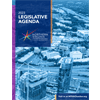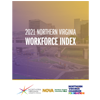Racial-Ethnic Composition of Northern Virginia Businesses
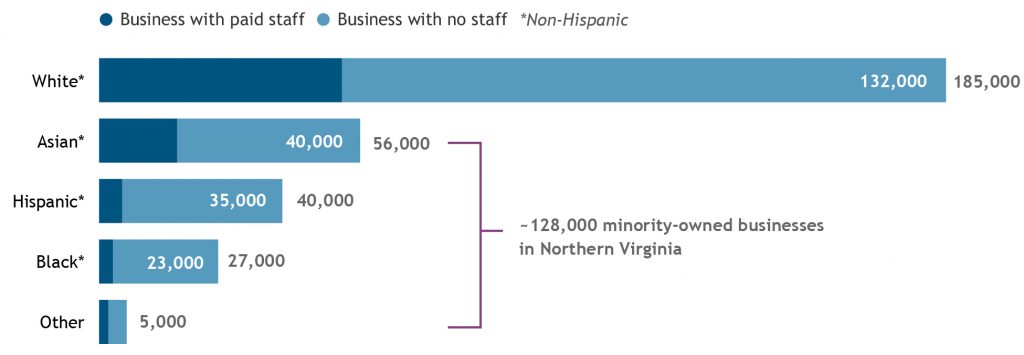
Racial-Ethnic Composition of Northern Virginia Businesses | Source: Hughes, E. 2021. Supporting Northern Virginia’s Minority-Owned Businesses: Findings and Recommendations from the Northern Virginia Minority-Owned Businesses Working Group. The Community Foundation for Northern Virginia.
Nationally, we know that this population of business owners has been extremely hard hit by the COVID-19 pandemic—for example, minority-owned businesses were more likely to have closed their doors (temporarily or permanently) during the pandemic (Federal Reserve, 2021) and to report being in “poor or fair” financial health at the end of 2020 (Fairlie, 2020). But locally, we have a much more limited understanding of how our minority-owned businesses have fared during the pandemic.
In Fall 2020, the Northern Virginia Minority-Owned Businesses working group was created to fill this knowledge gap, pulling analysts from philanthropy (the Community Foundation), government (NVRC), and economic development (the Northern Virginia Economic Development Alliance) to help leaders better understand and respond to the needs of this population.
The working group’s final report, Supporting Northern Virginia’s Minority-Owned Businesses, describes how three core attributes have placed minority-owned businesses at increased risk during the pandemic:
1. Size. The region’s small businesses have been particularly hard hit by the pandemic, with a steep decline in revenue and in the number of small businesses that were “open” in a given week throughout 2020. Small businesses are much more likely be minority-owned.
Percent change in small businesses open in a given week in 2020
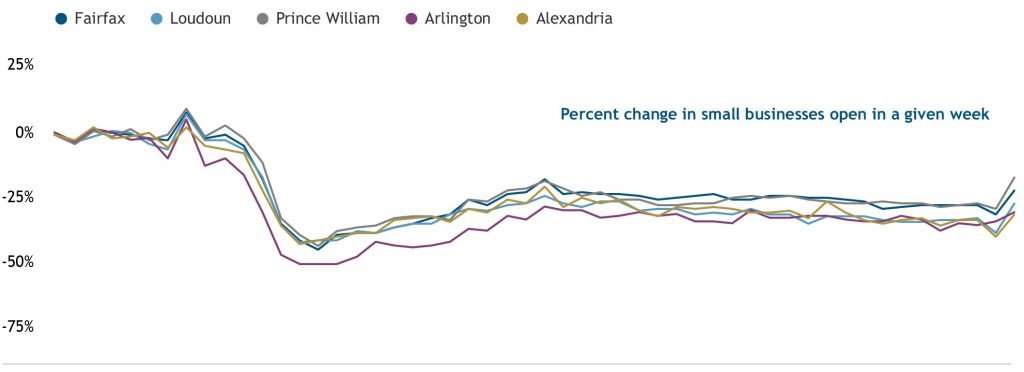
Percent change in small businesses open in a given week in 2020 | Source: Hughes, 2021
2. Industry. The working group identified seven industries in Northern Virginia at elevated risk during the pandemic, based on the number of people filing for unemployment in that industry relative to the size of its workforce before the pandemic. Minority-owned businesses—particularly Asian-owned businesses—were much more likely to operate in these elevated-risk industries.
Percent of businesses in elevated-risk industries, by owner(s) race-ethnicity
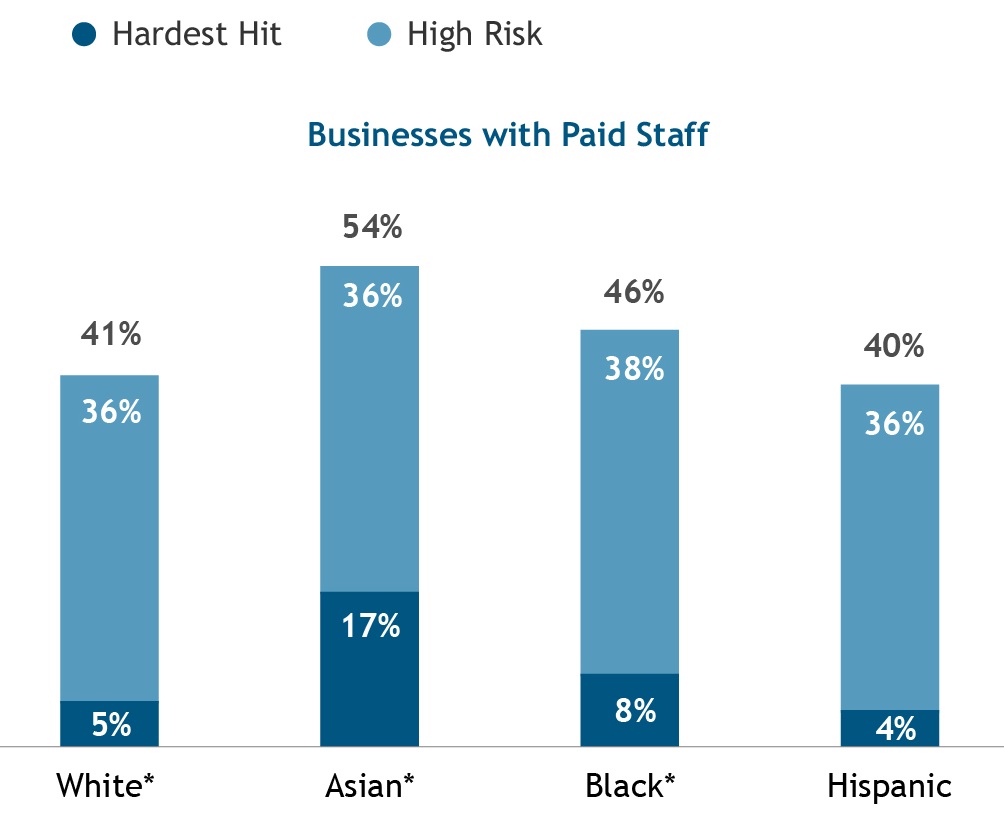
Source: Hughes, 2021
3. Access to Capital. Persistent racial wealth disparities have meant that minority-owned businesses have fewer resources to weather an economic downturn and remain solvent. This trend carries through in Northern Virginia, where Black and Hispanic business owners derive less income from business, less total income, and have less valuable homes from which to derive wealth.
Northern Virginia business owners’ income and home value
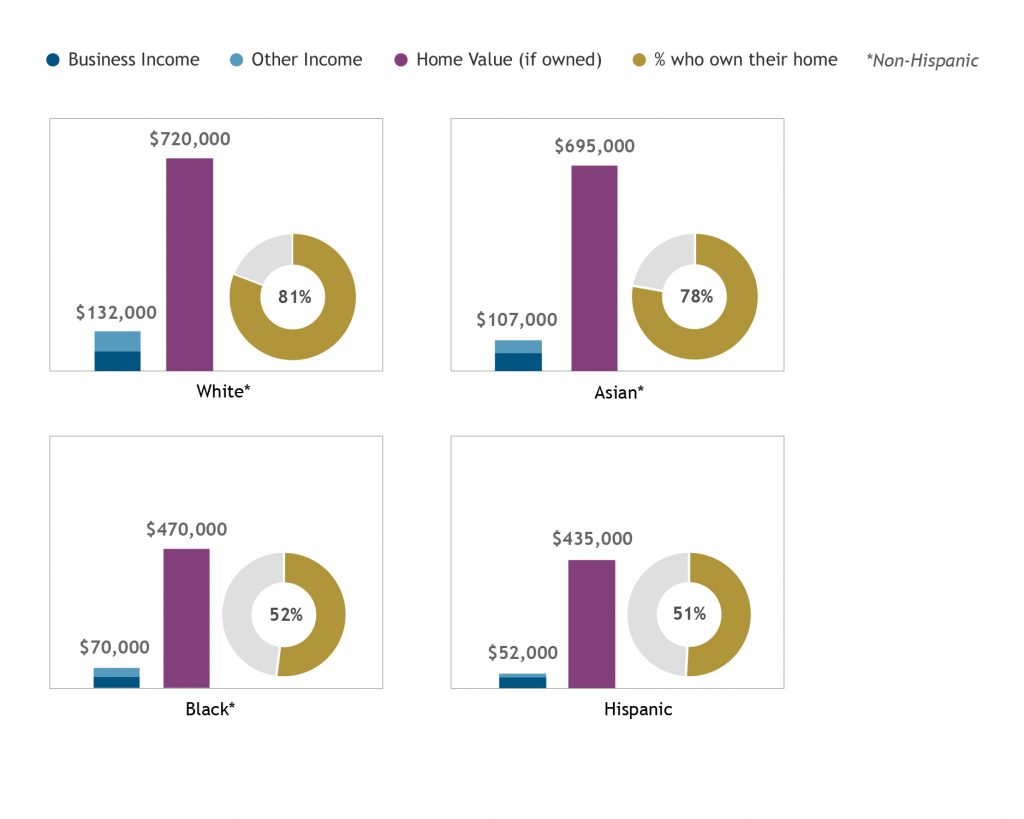
Source: Hughes, 2021
While the report paints a sobering picture of risk for Northern Virginia’s minority-owned businesses, it concludes with recommendations for how leaders across the business, government, philanthropy, and nonprofit sectors can support these businesses, including (1) continuing to monitor the region’s economic recovery; (2) collecting data regularly on Northern Virginia’s economy and businesses; (3) continuing to support small, minority-owned businesses in elevated risk industries; and (4) helping residents of color access and secure capital.
You can access the full report on the Community Foundation’s website at cfnova.org.

Eileen Ellsworth is the President and CEO of the Community Foundation for Northern Virginia.

Elizabeth Hughes is the Senior Director of Insight Region at the Community Foundation
Eileen Ellsworth is the President and CEO of the Community Foundation for Northern Virginia.
Elizabeth Hughes is the Senior Director of Insight Region at the Community Foundation and is the author of the working group’s final report.










